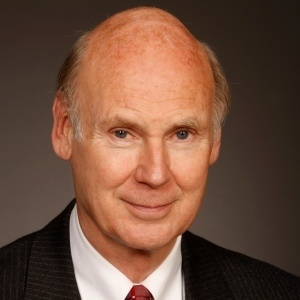Revitalise: Empowering inspired hospitality

Hospitality needs to be revered and revitalised if travel & tourism is to become a constructive and transformative force for good, according to K Michael Haywood.
It’s a “Good Tourism” Insight. [You too can write a “GT” Insight.]
Hospitality demonstrates transformative power when people embrace the other and contribute to the overall well-being of communities, citizens, and customers.
By providing a sense of affiliation that builds trust and feelings of importance, hospitality is the essential building block for repeat business. It determines the long-term survival of all communities-as-destinations.
Today, however, destinations face mounting challenges in their quest to revitalise as, post-pandemic, they struggle to turn the tide by achieving healthy growth, and circumventing the inevitable hospitality systems gaps and hidden stressors of emotional labour that have been allowed to fester.
As a contribution to resolving these and related problems, Destinations International is mounting a campaign in support of community shared value. From a strategic point of view, however, shared value has to extend far beyond the belief that “… our local residents are our ultimate customers”.
Communities-as-destinations must consider the interests of entire communities, their citizens and customers, all of whom want and deserve to be treated with respect. Obviously everyone needs to share tourism’s benefits, but far more needs to be done to clarify what outcomes are desirable and of importance to individual stakeholders.
Don’t miss other “GT” Insights by K Michael Haywood
Fortunately, by reclaiming our personal power, independent thought, and action, we can encourage our individual communities and organisations to flesh out the rhetoric and determine how best to honour and achieve community shared value; value that originates from the notion that hospitality represents the vital foundational principle and ingredient.
To do so we need to work more closely with all our tourism-related enterprises, DMOs, individual neighbourhoods, and tourism clusters to form high-impact coalitions; coalitions that, as exemplified in Europe, demonstrate DMOcracy instrumental in helping their communities revitalise and serve as guarantors of principled hospitality.
Hospitality in service for others, not simply provision of service to others. Service that stems from responsible, responsive approaches to planning and policy-making that serves to change and improve the game.
What is ‘vital’?
For the most part, travellers are extremely selective. Whether travelling for pleasure or on business, they prefer to visit only those communities that appeal, serve their needs, and go out of their way to welcome. The genuineness of hospitality on offer, however, is totally dependent on the willingness and desire of local populations, entrepreneurs, and enterprises to engage with those from away in meaningful and delightful ways.
At its most basic, hospitality operates as an essential means toward this end. But it cannot be a cynical exercise in “how to win friends and influence people”. Rather, genuine hospitality has to awaken the senses and provide experiences that lift spirits and touch hearts.
At its best, hospitality is a complex embodiment of life’s pleasures: The desire to gather in friendly, safe, and comfortable places. The desire to experience camaraderie and true affection. The desire to provide nourishment, accommodation, signature comforts, and amenities. With commitments to generosity and goodwill, politeness and grace, hospitality’s goal is a richly elaborated life; a nurturing of being, beauty, restraint, joy, and fondness.
Don’t miss “Good Tourism” content tagged with
“Hotels and resorts and other accommodation”
While deeply woven into a tapestry of place and cultures, family and political life, hospitality and kindness have the power to enhance everyone’s well-being; a vital requirement that can transform organisations and communities. By stirring our collective imaginations and generating behaviours that celebrate life and traditions, hospitality serves to personalise, even revolutionise the ordinary.
Hospitality, when truly inspired, however, goes far beyond that which is mediocre. It empowers achievement of the extraordinary, and can become the essential transformative force associated with magnificence, enhancing the ‘wellth’ and well-being of all.
Such magnanimity, though, depends on our cultural range; our willingness to deal with visitors and our employees, with all their idiosyncrasies. Similarly, it depends on how well we, as individuals and communities, succeed at self-monitoring our behaviours towards others. Communities cannot legislate host/visitor behaviours.
Nevertheless, as we set forth to revitalise our communities-as-destinations, we have no choice. We must make every effort to validate decency, kindness, and tenderness, and create networks of goodwill.
Don’t miss “Good Tourism” content tagged with
“Community-based tourism”
If we are to understand the basics of being emotionally agile (adjusting behaviours to messy situations), as well as to educate and design the what, the how and the to whom hospitality is offered — especially in consideration of “why” it is offered — we need to be extremely vigilant.
By doing so, we can create organisations that people enjoy working for. This requires that we fully engage our employees; communicate with and harness their emotional energies; and, design better jobs.
It is essential, moreover, that we connect employees to organisational purpose and provide them with specific goals, plus the freedom to figure out how to reach this purpose, especially in relation to improving individual visitor experiences.
Emphasis has to be put on making the varied jobs associated with hospitality more meaningful, and employee experience more rewarding. Cultural fluency has to be encouraged. It can be achieved by helping people deal with unavoidable cultural faux pas through education and training.

Hospitable people, places, planet
As more communities-as-destinations and their DMOs set their sights on ‘community shared value’ and the transformative journey toward the hospitable manifestations of magnificence, care must be exercised. As proposed, inspired hospitality represents one of the community’s most vital strategic resources…the one strategic resource deemed “valuable, rare, difficult to imitate, and non-substitutable”.
To protect and develop hospitality as a strategic resource, imagine acting on the belief that our employees and our community come first, not just our visitors or customers. As Danny Meyer explains, such a conviction represents the foundational and formidable art of hospitality so different from the typical service mentalities that hold sway, such as “the customer is always right”.
Don’t miss “Good Tourism” content tagged with
“HR and human capital development”
Hospitality has to come from the heart for it to make “people” (visitors and citizens) feel special and at home. Hospitality, delivered for others, is what contributes the most to tourism’s success. It will deliver untold benefits forever, so long as it is truly principled and aligned with the restoration of value desired by all stakeholders.
Now, if hospitality comes from the heart, where lies the heart? It has been said that “home is where the heart is”. Put another way, it is dependent entirely on people recognising their communities as being a comfortable sense of place, rather than an existential struggle with or within it.
Tourism’s strategic resource has always been considered to be community or ‘place’. It becomes vitalised when the power of hospitality pervades it; when people care about their community and feel obligated to represent it at its best, particularly in encounters with visitors, as all citizens and organisations have a meaningful stake in the outcomes.
Don’t miss “Good Tourism” content tagged with
“Sustainable tourism and regenerative tourism”
At the level of ‘planet’, the most inimitable of tourism’s strategic resources, today’s focus has to be on climate change and tourism’s efforts to address it and to become and remain sustainable. If our planetary home is to be a singular priority, then we must treat it with even greater respect and hospitality.
While we must be all-consumed with ensuring ‘people’, ‘place’, and ‘planet’ are and remain sustainable, we cannot ignore how dependent many communities and neighbourhoods, organisations and residents are on tourism. Their economic, cultural, social, and nature-based sustainability can suffer immensely if the travel & tourism industry slides into decline. This is why hospitality, as a foundational and principles concept, has to be inspired and revered. Its revitalisation is essential if tourism is to become and truly remain a constructive and transformative force for good.
What do you think? Share a short anecdote, comment, or question below. Or write a “GT” Insight. The “Good Tourism” Blog welcomes diversity of opinion and perspective on travel & tourism because travel & tourism is everyone’s business.
Featured image (top of post): Revitalise: Empowering inspired hospitality. Refreshing drink by Photo Mix (CC0) via Pixabay.
About the author

K Michael Haywood is Professor Emeritus, School of Hospitality, Food and Tourism at the University of Guelph in Ontario, Canada. Prof Haywood has recently written an e‑book “Astonish, Smarter Tourism by Design”. Find Michael on LinkedIn.





